A non-inclusive July Charter will be a betrayal
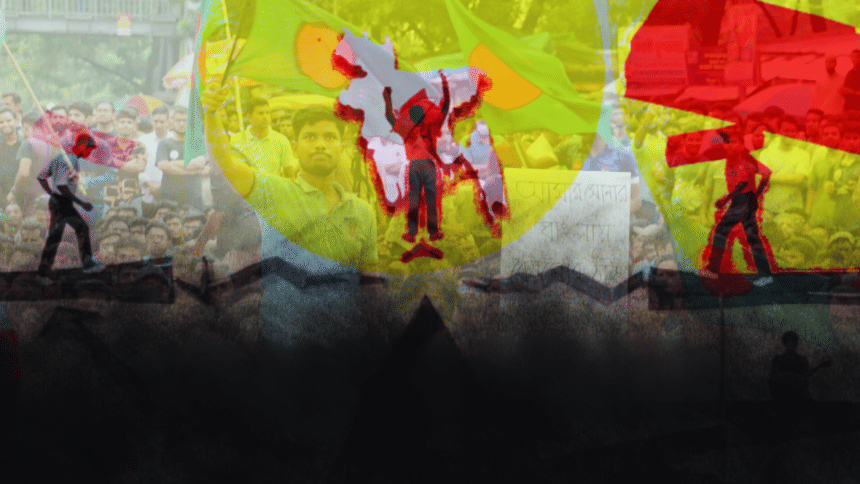
In any society, genuine structural change occurs when the material conditions shift, which includes the transformation of the forces of production, the economic structure, the organisation of political elites, and even the cultural elites. The 2024 July-August uprising certainly had revolutionary aspirations. People wanted change in political culture, governance, exclusionary practices, and discrimination in the country. However, while the aspirations existed, the preparations were lacking. Neither the political parties, the civil society, nor any other group was sufficiently prepared to channel the energy that moved the uprising into structural changes in the economy, politics, or other vital areas. As a result, the institutions and settlements remained unchanged.
Since we were not ready to turn the energy of the uprising into something qualitatively different, I would not call the July uprising a revolution. I would call it an uprising, where people from all walks of life came together to stop Sheikh Hasina from killing our children and innocent civilians, who were protesting non-violently. The second catalyst was to dismantle and rebuild the fascist structure of the Awami League, which had been used to destroy key institutions. Yet, after Sheikh Hasina's overthrow, we are witnessing the return of the same old settlements in culture, politics, governance, and even the judiciary.
Now comes the question of whether the uprising succeeded. If we look at the timeline, it began as a student protest, a movement demanding better opportunities in government jobs. Later, because of the regime's repression and killings, the protest spread. The political and economic repression people suffered from also became a factor. Citizens lacked the right to speak out, the right to a free press, and the freedom of expression, all of which were restricted to a severe degree. People were angry because the economy was failing, and avenues of dissent were closed. While these factors were significant, without the videos of the regime's brutality circulating on social media, the uprising would not have gained momentum so rapidly.
Although the uprising was successful in overthrowing the previous regime, after which Sheikh Hasina fled, in the long term, it failed to fulfil people's aspirations. It did not bring systematic change to the structure of the fascist regime's apparatus. "Bangladesh 2.0" could not yet build new institutions or establish a process of justice for those who sacrificed their lives hoping for change. There is still no visible path to justice for those who were martyred and wounded. We wanted those who had lost their lives to be remembered, and the wounded to receive rehabilitation and treatment. None of that has been fully achieved yet. These are major failures. However, judging the uprising by its immediate outcome, it can be termed as successful, as it removed the autocrat and made the Awami League politically and culturally vulnerable in ways we had not expected for a long time. It also opened up a window of opportunity to initiate some real changes.
We hope to see the initiation of those changes and the aspiration of a discrimination-free Bangladesh, witnessed in the chants, slogans, and songs of the July uprising, reflected in the much-discussed July Charter. If the charter turns out to be a document that serves only the majority and the powerful, and if it is imposed upon the rest, it will be a huge disappointment. If the charter is not inclusive of minorities, women, Indigenous Peoples, non-Bangalee communities, and non-Muslims, then it will not be my July Charter. It must uphold the dignity and rights of all citizens. In July, people filled the streets because they felt the state no longer respected them as human beings, as citizens. Our votes did not matter, our voices did not matter, and no one was accountable to us. We were treated as if we had no value. We fought to reclaim our dignity as citizens, demanding equal respect and equal rights for all. That equality must be established. Religion, gender, profession, or any other grounds of discrimination cannot remain in the charter. That is our expectation.
We also expect that the Liberation War—the very foundation of our independence—should never be undermined. The moment of a nation's inception is profoundly important for many reasons, and there is no room to diminish it. The history of Bangladesh's Liberation War is bloody and genocidal. It cannot be compared to anything else or dismissed as a conspiracy. There must be no false equivalence between 2024 and 1971, or other events such as the Partition of 1947 or the Language Movement of 1952. All these points in history are crucial moments that formed the foundation of our country—enacted in blood. These historical moments cannot be compared. Denial of these events cannot be tolerated. No one has the right to do so.
Our demand from a fundamental human rights perspective is: equal dignity as citizens. We also demand that we do not regress on our achievements. Each achievement has a long and painful history, paid for with blood, sweat, and tears. The sacrifices made to secure our liberty, freedom, and rights cannot be reversed. Any attempt to undo those achievements is unacceptable.
Dr Samina Luthfa is professor at the Department of Sociology in Dhaka University.
Views expressed in this article are the author's own.
Follow The Daily Star Opinion on Facebook for the latest opinions, commentaries and analyses by experts and professionals. To contribute your article or letter to The Daily Star Opinion, see our guidelines for submission.

 For all latest news, follow The Daily Star's Google News channel.
For all latest news, follow The Daily Star's Google News channel. 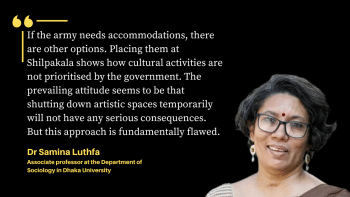
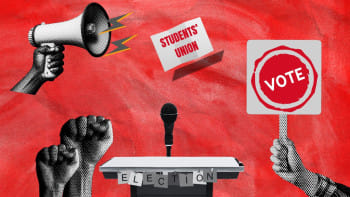



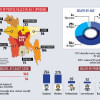
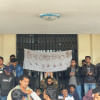

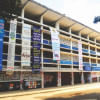


Comments